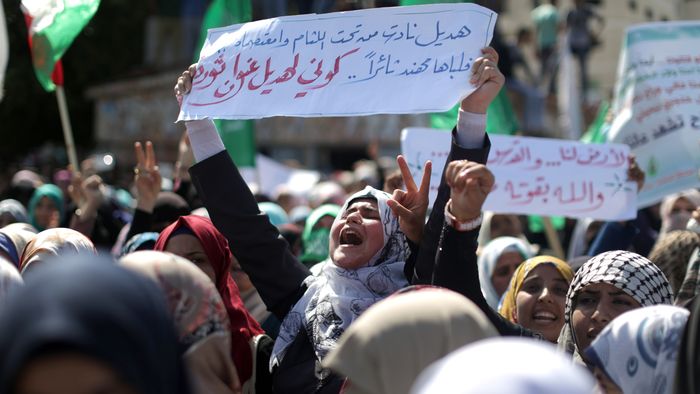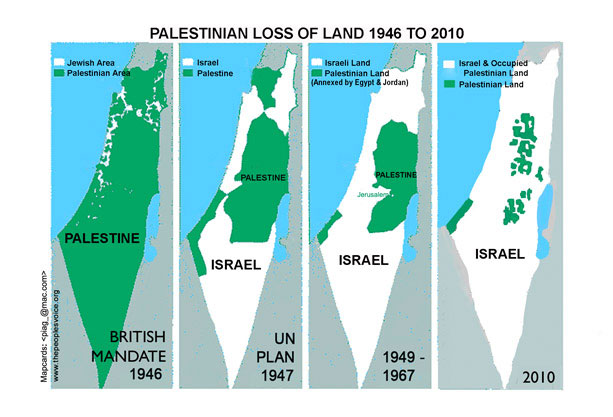Why Is The World Ignoring Palestine’s ‘Third Intifada’?
By Shubhda Chaudhary
29 January, 2016
Countercurrents.org

Already ravaged by two political Intifadas in the past, Palestine is now undergoing a third ‘leaderless Intifada’ in West Bank and Gaza. In fact, there is disagreement over whether a leader is even needed. In a striking paradox, several names are being considered for the leadership that does not exist: Jerusalem Intifada, Mass Intifada, Revolutionary Wave and Third Intifada.
As West Asia is too gripped in sectarian conflict and rise of ISIS, this emerging trend is going unnoticed. But the violence is already cementing the layers of distrust that Palestinians harbor against Jews, with calcifying hatred.
After the desecration of Al-Aqsa Mosque and other sacred Islamic sites in various parts of the occupied Palestine by Israelis, Palestinians have been pouring out on the streets. The retaliatory attacks by Palestinians have claimed the lives of seven Israelis while leaving a number of them injured. It should be noted that the average age of demonstrators and people responsible for stabbing and running over people is less than 20 years old. They were born after the Oslo Accord between the Palestinian Liberation Organization and Israel in 1993 and 1995. They are just coming of age, and it’s hard for them to see any future but a bleak one.
The violence was evident during the funeral of Ruqayya abu-Eid, the 13-year-old Palestinian girl who was killed by Israeli security forces. During the funeral, the crowd chanted the famous slogan of the second intifada – “Millions of martyrs are marching to Jerusalem” and waved the Hamas flag.
The video of the attempted stabbing attack, released by Israeli security forces, aroused furious responses from Palestinians on Arab social media. Since the video’s quality is low and the girl appears to be proudly heading toward the soldiers with a knife in her hand, many Palestinians claim that the knife was planted in the video in order to justify the girl's “execution.”
The point, however is, why Palestine in spite of the two Intifadas in the past, has not been able to achieve the goal? The first factor for the victory of any struggle is having consolidated leadership chosen by people, whose absence is seriously felt in the Palestinian movement. Throughout the history of the Palestinian nation’s struggles, two streaks of Islamist and nationalistic thinking have accompanied this nation side by side. Even the establishment of a coalition government has not been able to totally do away with the basic differences that exist between these two groups. As a result of it, the internal power politics in Palestine has never been materialized, especially with the animosity between Hamas and Fatah growing stronger. It makes it easier for Israel to simply state that ‘There’s no one to talk to?’, while referring to the bifurcated leadership in Palestine.
Absence of a stable and powerful leadership has led to the second factor, that is, inability to mobilize the Palestinian people, which have caused prolongation of the Palestinian crisis. This means that there are no powerful and legitimate centers in Palestine around which mobilization and broad-based gathering of people could take place. Thirdly, lack of territorial continuity and geographical distance between the Gaza Strip and the West Bank is another factor, which has proven to be a major impediment on the way of the unity and close cooperation among Palestinian nation and has barred them from making effective moves.

At the same time, the chances of a two-state solution are growing slim. This has happened in the past 25 years which focused on borders, settlements, Jerusalem and the right of return of refugees as demographic changes took place. No wonder in 1948 Palestinians owned 80 per cent of the land. Following the establishment of Israel their land had shrunk to less than 3.5 per cent. The same laws were used extensively in the West Bank to confiscate Palestinian land, which were later handed to Israeli settlers to build “Jewish only” colonies.
Another salient case of Israeli discrimination against non-Jewish Israeli citizens is the Prawer-Begin plan to depopulate 35 unrecognized Palestinian Bedouin communities in the Negev desert. In one instance, Israel demolished and Palestinian Israeli citizens rebuilt the village of Al-Araqeeb 93 times in the last five years.
The Israeli prime minister and other top officials lashed out against Sweden earlier this month after its foreign minister, Margot Wallström, called for an investigation into the slayings of dozens of Palestinians in recent months.
Chief Israeli Rabbi Shmuel Eliyahu has called for executing Palestinians in order to afford safety for the Israeli occupation states. “Israeli army has to stop arresting Palestinians,” he posted on his Facebook wall, “but, it must execute them and leave no one alive.”
Meanwhile, reports about a leaderless intifada have gone viral on social networks in the past few days. Some Palestinian activists are calling for a decentralized field leadership capable of planning and guiding the movement while confronting Israeli escalations. Others demand that the intifada remain spontaneous and leaderless. Still others believe that the success of the popular spontaneous movement is conclusive evidence of the failure of Palestinian organizations and leaders in their political performance in past years.
Shubhda Chaudhary is a PhD scholar in International Relations at JNU. She is also working with think tanks in Abu Dhabi and South Africa. Email Id : shubhda. [email protected]

